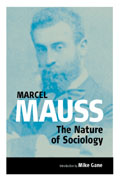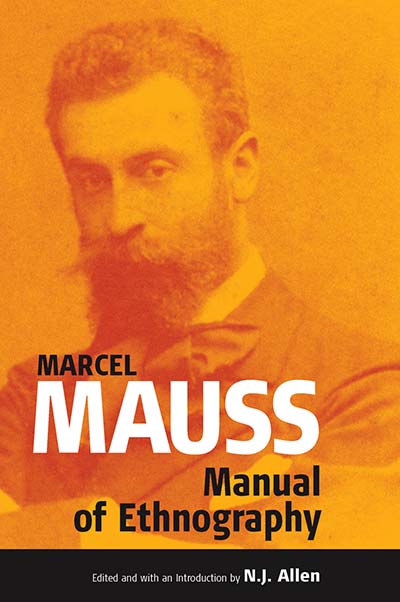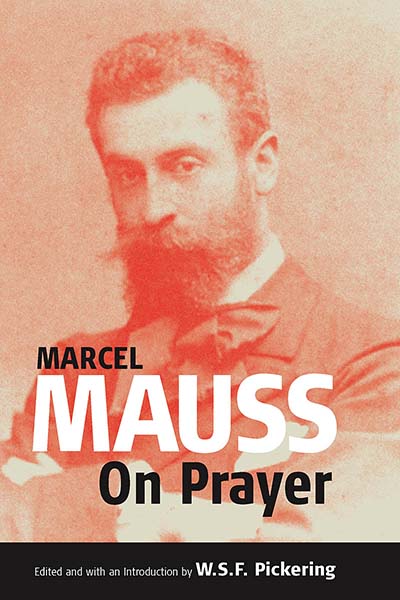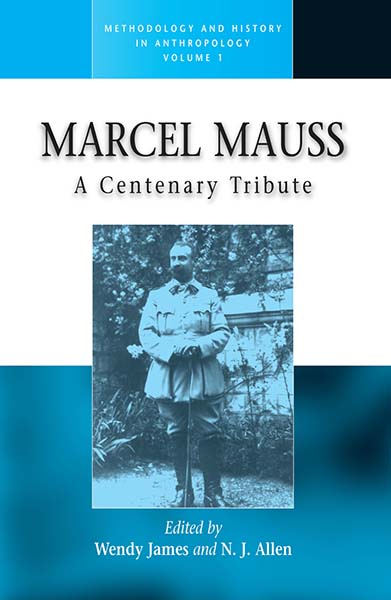Marcel Mauss, (born May 10, 1872—died Feb. 10, 1950), nephew of Émile Durkheim, French sociologist and anthropologist whose contributions include a highly original comparative study of the relation between forms of exchange and social structure. His views on the theory and method of ethnology are thought to have influenced many eminent social scientists.
Learn more about the life and legacy of this influential sociologist with these books from Berghahn:
 THE NATURE OF SOCIOLOGY
THE NATURE OF SOCIOLOGY
Marcel Mauss
Translated by William Jeffrey
Introduction by Mike Gane
Having taken over the leadership of the French school of sociology after the death of his uncle, Emile Durkheim, in 1917, Mauss, celebrated author of The Gift, re-launched the flagship journal, the Année sociologique. Here are two of Mauss’s most significant statements on the social sciences. The first, written with Fauconnet, outlines the methodological orientations of the school. The second examines the internal organization of sociology as a division of intellectual labor. The essays are of interest to anthropologists as well as sociologists for Mauss, like Durkheim, did not distinguish in detail the two disciplines.
 THE MANUAL OF ETHNOGRAPHY
THE MANUAL OF ETHNOGRAPHY
Marcel Mauss
Translated by Dominique Lussier
Edited and Introduced by N. J. Allen
Published in Association with Durkheim Press
“In the wake of considerable recent biographical attention to Marcel Mauss in English-language publications, it is fitting that works by him still available only in French appear in translation. The Manual of Ethnography has been expertly translated by Dominique Lussier, and appropriately edited and introduced by N. J. Allen. This historically important document, … reflects the youthful moment of modern anthropology when the questions and subjects of this discipline came to depend on rigorous collection of material from field research… an important historical document in the context of Mauss’s teaching of anthropology and in the originary hopes for ethnography. Highly recommended.” · George Marcus in Choice
 TECHNIQUES, TECHNOLOGY AND CIVILIZATION
TECHNIQUES, TECHNOLOGY AND CIVILIZATION
Marcel Mauss
Edited and with an Introduction by Nathan Schlanger
Published in Association with the Durkheim Press
“It seems that Mauss’s fame has grown in inverse proportion to knowledge of his actual writings. It should therefore be a matter of celebration that his occasional writings on techniques and technology have been published in English…when we look more closely at what Mauss did and did not do, his iconic status may be somewhat tarnished. But his general example still has the power to inspire, and maybe that is what counts.” · JRAI
 ON PRAYER
ON PRAYER
Text and Commentary
Marcel Mauss
Edited and with an introduction by W. S. F. Pickering
Published in Association with Durkheim Press
“This study should have been his doctoral dissertation that he never finished…Its English version clearly shows that we are dealing with an important text on a topic that is curiously little explored by anthropologists.” · Revue philosophique
“There is much of interest in this well-presented volume. Mauss’s careful discussion of differences among types of oral rites – incantations, spells, invocations – remains instructive.” · Social Anthropology
of related interest:
 MARCEL MAUSS
MARCEL MAUSS
A Centenary Tribute
Edited by Wendy James and N. J. Allen
“Each of the essays in this volume deals with various facets of his work, and all of them should be read.” · American Anthropologist
“This book offers a unique insight into the influence of one of the discipline’s most important theorists. James and Allen are thoughtful editors … their respect produces the best form of criticism in fourteen essays by British, and other European, anthropologists … This is intriguing and stimulating reading … Mauss’s work receives careful attention in this book which is helpful, incisive, and broadly significant to anthropology.” · JRAI

